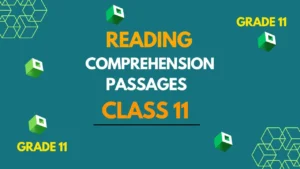Explore the 9 benefits of early childhood education in 2024. Discover why investing in your child’s early education can set them up for a bright future.
Introduction
In 2024, the importance of early childhood education remains as relevant as ever. As parents, caregivers, and educators, it’s crucial to understand the significant advantages that high-quality early education can offer to our children. In this article, we will explore nine key benefits of early childhood education in 2024 and why it continues to be a vital investment in a child’s future.
The Foundation for Lifelong Learning
9 Benefits of Early Childhood Education in 2024:
- Enhanced Cognitive Development: Early childhood education stimulates young minds, fostering essential cognitive skills such as problem-solving, critical thinking, and language proficiency.
- Improved School Readiness: Children who have experienced quality early education are better prepared for formal schooling, setting the stage for academic success.
- Social and Emotional Growth: Early education environments promote social skills, emotional intelligence, and resilience, helping children build positive relationships and cope with challenges.
- Long-Term Educational Success: Research consistently shows that children who attend quality early education programs achieve higher academic success in later years.
- Reduced Behavioral Issues: Early education reduces the likelihood of behavioral problems, instilling self-control and effective communication skills.
- Economic and Social Impact: Investing in early education leads to lower crime rates and a more productive workforce, benefiting society as a whole.
- Parental Involvement: Active parental engagement enhances the benefits of early education and strengthens the parent-child bond.
- Quality Early Education Programs: Innovative approaches like Montessori and Reggio Emilia provide hands-on learning experiences that cater to individual child needs.
- Addressing Disparities: Communities are working to ensure that early childhood education is accessible to all children, bridging educational inequalities.
Now, let’s delve into each of these benefits in more detail.
The Cognitive Benefits in Early Childhood Education
Improved Cognitive Development
One of the primary advantages of early childhood education is its positive impact on cognitive development. Young children are like sponges, eager to absorb information and explore the world around them.
Quality early education programs provide stimulating environments where children can develop essential cognitive skills, such as problem-solving, critical thinking, and language proficiency.
Better School Readiness
Children who have participated in early childhood education are better prepared for formal schooling. They enter kindergarten with a solid foundation in literacy, numeracy, and social skills. This school readiness sets them on a path to academic success, with higher chances of excelling in their studies.
Social and Emotional Development in Early Childhood Education
Building Strong Social Skills
Critical social skills are developed through early childhood schooling. Children learn how to interact with peers, share, and collaborate.
These experiences are instrumental in building strong social competencies that benefit them throughout their lives.
Emotional Intelligence
Emotional intelligence is another key aspect of early childhood education. Children learn to identify and manage their emotions, which helps them build healthy relationships and cope with life’s challenges. This emotional resilience is a valuable life skill.
Long-Term Educational Success in Early Childhood Education
Higher Academic Achievement
Research consistently shows that children who have access to quality early childhood education tend to perform better academically in later years.
They have a higher likelihood of finishing high school, going on to further their education, and finding rewarding work.
Reducing the Achievement Gap
Early childhood education plays a vital role in reducing educational disparities. It ensures that children from all backgrounds have access to the same opportunities, bridging the achievement gap and promoting equity in education.
Behavioral Benefits Early Childhood Education
Reducing Behavioral Issues
Participating in early childhood education significantly reduces the likelihood of behavioral problems in children.
They learn self-control, problem-solving, and effective communication, leading to fewer behavioral issues both in and out of school.
Improved Self-Control in early childhood education
Early education helps children develop self-regulation skills. They learn to follow rules, manage their impulses, and make responsible choices—a vital foundation for future success.
Economic and Societal Impact Early Childhood Education
Lower Crime Rates
Investing in early childhood education can have far-reaching societal benefits. Studies have shown a correlation between early education and lower crime rates in later years.
By providing children with a strong foundation, we contribute to safer communities.
Increased Workforce Productivity
A vibrant economy depends on a skilled workforce. Early childhood education ensures that future generations are equipped with the skills and knowledge needed to drive economic growth.
Parental Involvement in early childhood education
Importance of Parental Engagement
Early childhood education is absolutely dependent on parental engagement. When parents actively participate in their child’s learning journey, it enhances the benefits of early education and strengthens the parent-child bond.
Ways Parents Can Support Early Childhood Education
Parents can support early childhood education by reading to their children, engaging in meaningful conversations, and creating a stimulating learning environment at home.
These simple yet impactful actions can complement formal early education programs.
Quality Early Education Programs Early Childhood Education
Montessori and Reggio Emilia Approaches
Quality early education programs often incorporate innovative approaches like Montessori and Reggio Emilia.
These methods emphasize hands-on learning, exploration, and individualized instruction, aligning with the needs and interests of each child.
Play-Based Learning
Using play to learn is a crucial part of early childhood education. It allows children to learn through play, fostering creativity, problem-solving, and social skills in a fun and engaging way.
Challenges in Access to Early Childhood Education
Disparities in Access to Early Childhood Education
Despite its numerous benefits, not all children have equal access to early childhood education. Disparities in access exist based on socioeconomic factors, geographic location, and other variables.
Addressing the Issue
Addressing these disparities is essential. Policymakers, educators, and communities must work together to ensure that early childhood education is accessible to all children, regardless of their background.
Conclusion
In conclusion, early childhood education is a powerful tool for unlocking a child’s potential. It enhances cognitive development, fosters social and emotional skills, and sets the stage for long-term educational success.
Investing in quality early education programs not only benefits individual children but also has a positive impact on society as a whole. It’s time to prioritize early childhood education and provide every child with the opportunity to thrive.
FAQs on Early Childhood Education
Is early childhood education only about academics?
Early childhood education encompasses more than academics; it also focuses on social, emotional, and cognitive development.
Are there government programs that support early childhood education?
Yes, many governments offer programs and initiatives to promote access to quality early childhood education.
What is the ideal age to start early childhood education?
Early childhood education can begin as early as infancy, with age-appropriate activities tailored to the child’s developmental stage.
How can parents enhance early childhood education at home?
Parents can support early education by reading to their children, engaging in educational play, and fostering a love for learning.
What can communities do to address disparities in access to early childhood education?
Communities can advocate for equitable access, support affordable childcare options, and collaborate with local organizations to expand early education opportunities.







